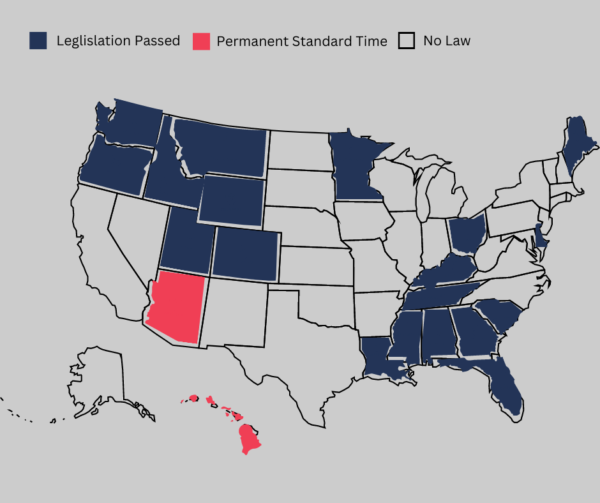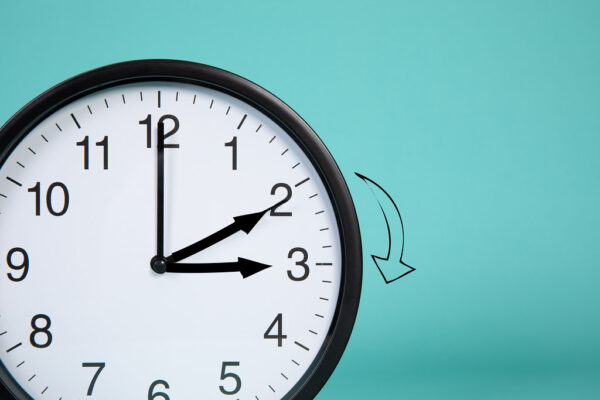Have you been wondering what the heck is up with daylight saving time these past couple years? It’s a fair question. The short answer is, yes. We are still turning our clocks forward this spring, at 2:00 a.m. on Sunday, March 12.
The Long Answer
The long answer is that legislators have been trying to change this policy for a large part of the 21st century, and maybe even longer.
“This is an issue that has been debated for decades. There’s a long, long history of this, of countries wanting to have more light in the evening, not just the United States but other countries,” Sen. Wayne Harper for the Utah Legislature told Deseret News in 2021.
He said the time change has been “one of the hottest topics” since he was elected in the late 1990s.
Supporters of permanent daylight saving time argue that the change would help children play outside longer and reduce seasonal depression. A number of studies have linked time changes to heart problems, car crashes, and even reduced productivity at work. Opponents of the change, however, fear the implications of daylight saving time forcing children to go to school in the dark during winter months.
What Is the Likelihood of Legislation Making Daylight Saving Time Permanent?
Currently, Utah is among the 19 states opting to make daylight saving time permanent.

In 2020 the Utah Legislature approved SB-59, a trigger law sponsored by Sen. Harper, that will make daylight saving time permanent once Congress opens up the option and four other states in the region also make the change.
Unfortunately the switch to permanent daylight saving time has to first be approved by the federal government. Despite lawmakers’ efforts at making this change, the government policy still has not budged.
Last week another version of the Sunshine Protection Act passed last March by the senate was reintroduced, sponsored by Sen. Marco Rubio. The bill, like the old version, proposes that this weekend’s clock change would be the last, keeping the country on daylight saving time permanently.
Rubio, who has continually advocated for the switch, has grown increasingly frustrated with the federal government’s slow progress.
“This ritual of changing time twice a year is stupid,” Rubio said in a statement released with the bill proposal. “Locking the clock has overwhelming bipartisan and popular support. This Congress, I hope that we can finally get this done.”
– by Abbie Call
Feature image caption: The clock “springs forward” from two to three. Courtesy Jerej Furman/flickr.

Abbie Call – Cannonville/Kirksville, Missouri
Abbie Call is a journalist and editor at The Byway. She graduated in 2022 with a bachelor’s degree in editing and publishing from Brigham Young University. Her favorite topics to write about include anything local, Utah’s megadrought, and mental health and meaning in life. In her free time, she enjoys reading, hanging out with family, quilting and hiking.
Find Abbie on Threads @abbieb.call or contact her at abbiecall27@gmail.com.

